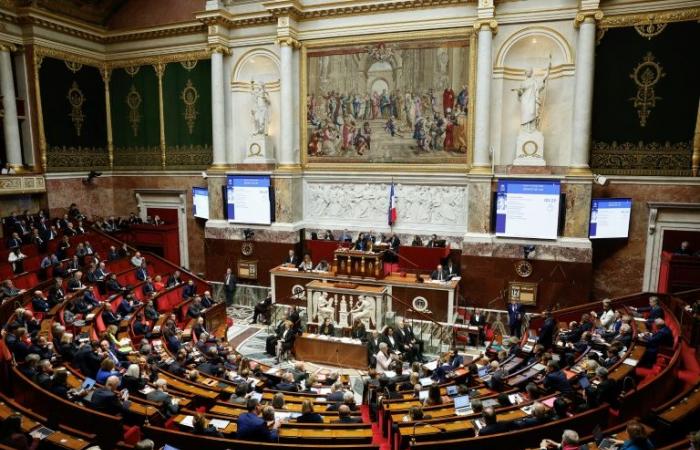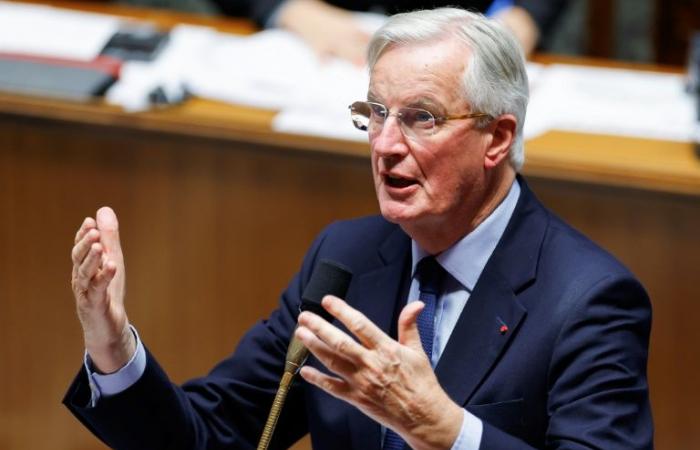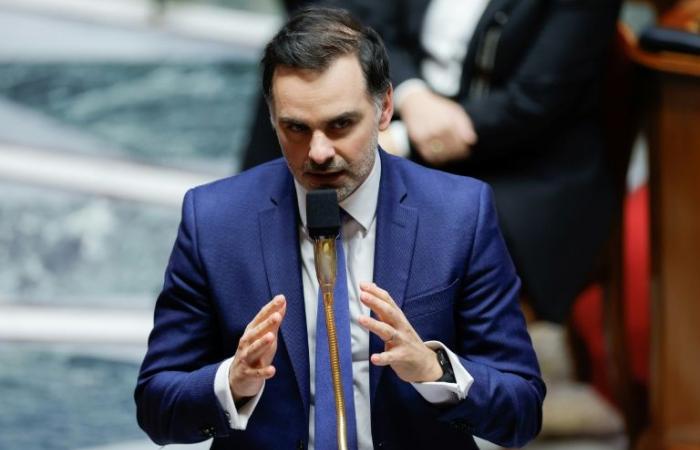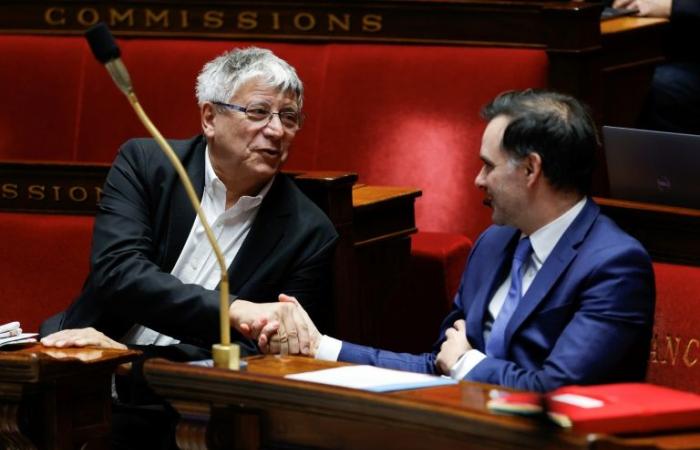After the battle of ideas, the vote: the deputies are called on Tuesday to decide on the “revenues” of the draft budget for 2025 which have become “NFP-compatible” according to LFI, but which could be rejected, before going to the Senate, the government meanwhile increasing compromises towards its supporters.
In the event of a vote against at the end of the afternoon, the entire text will be considered rejected, putting an end to its examination, and above all allowing the government to submit its original copy to the Senate, rather than the very largely modified one. by the oppositions, but also sometimes its own supporters.
A reversed front scenario should see the government coalition vote against this revised version, with the assistance or abstention of the RN, facing a left which would on the contrary want to have it adopted to validate its victories in the hemicycle.
During the long weekend, the government anticipated the examination of this text, but also of the draft Social Security budget, in the Senate, seeking to reassure its fragile parliamentary coalition.
Compromise on pensions and electricity?
Retirement pensions, which were to be frozen, will be increased on January 1 but only by half of inflation, announced Monday the boss of deputies DR Laurent Wauquiez, revealing a compromise reached with Michel Barnier.
Budget Minister Laurent Saint-Martin announced Tuesday on France 2 a compromise which could be achieved in the “coming days” to limit the reduction in contribution reductions for businesses, a Macronist marker.
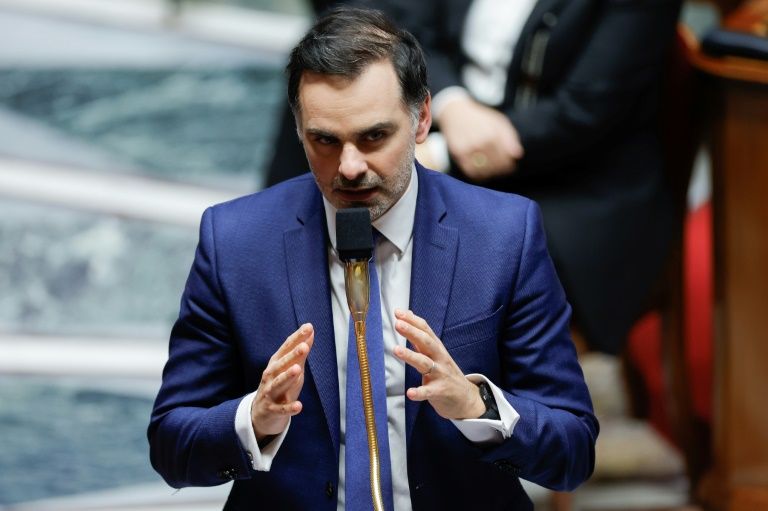
A few hours later, it was in the Assembly that he extended his hand to MoDem deputy Jean-Paul Mattei. The minister announced during questions to the government that his proposal to perpetuate the tax on high incomes could be retained until the deficit was brought down to “for example” 4%.
As for Michel Barnier, he committed to the boss of the Horizons deputies, Laurent Marcangeli, to work on their proposal for a “single social allowance”. In response to a question from Laurent Wauquiez, he also announced that the government was ready to introduce a review clause to verify and possibly correct the effects of a tax on electricity, an irritating point in his coalition.
“Not voteable”
During the examination in the Assembly, the left alliance of the New Popular Front (NFP) notably attached the finance bill (PLF) with new taxes on superprofits, superdividends, share buybacks. , the assets of billionaires, or even on the “big digital companies”.
A sign of the difficult readability of the debates, which ended during the night from Friday to Saturday, no one seemed to have quite the same calculator to estimate the new revenues created.
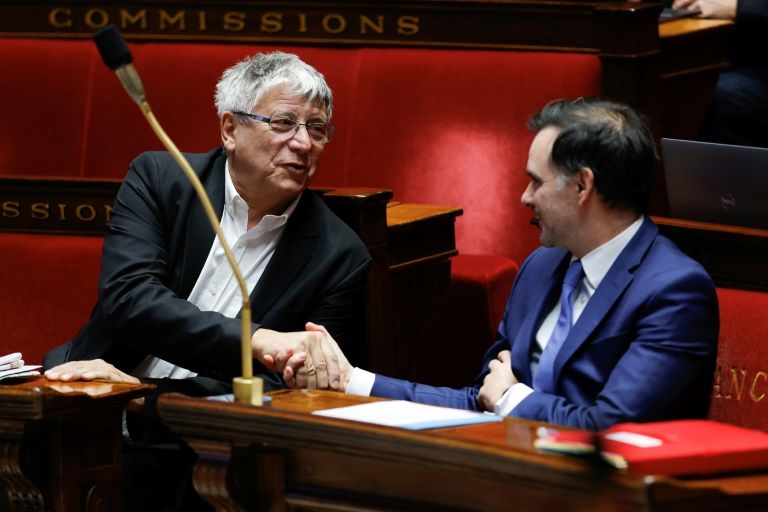
Mr. Saint-Martin denounced a “fiscal overdose” of “35 billion euros which will spare no one”.
Eric Coquerel, LFI president of the Finance Committee, calculated a net balance of revenue created “of 58 billion euros”. “We showed that we could make an NFP-compatible budget,” he stressed to the press on Tuesday.
In a twist initiated by the National Rally group, the article providing for levies for France's contribution to the European Union was also deleted.
“Obviously this budget is not voteable as it stands,” assured Macronist MP David Amiel (Together for the Republic, EPR) on Saturday.
The government coalition in the Assembly (EPR, MoDem, Horizons, Republican Right) was itself not kind to the government's copy, actively participating in the suppression of several key measures. However, she would have to reject the text so that the initial copy could be sent to the Senate.
Conversely, the four left-wing groups in the Assembly (LFI, PS, Ecologist and Social, communists) announced that they would vote for the text. But barring an accident in participation, the left will however have difficulty getting it adopted, facing the government coalition and the RN which will not support it.
On Monday, a source in the group estimated that the RN was “very likely” heading towards a vote against.
In the event that the “revenue” section is adopted, the deputies would immediately continue the examination of the “expenditure” part of the finance bill, with the deadline of November 21 on the horizon to examine the some 1,500 amendments tabled, before the text was sent to the Senate.
■

